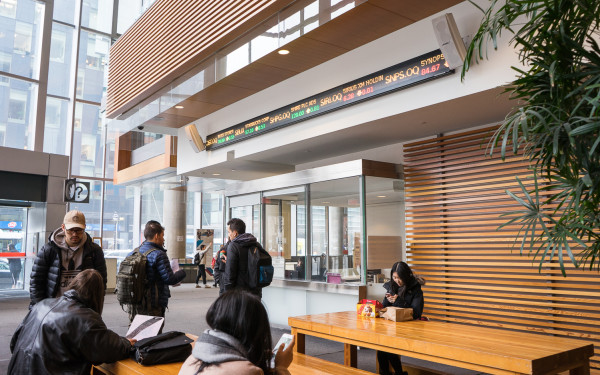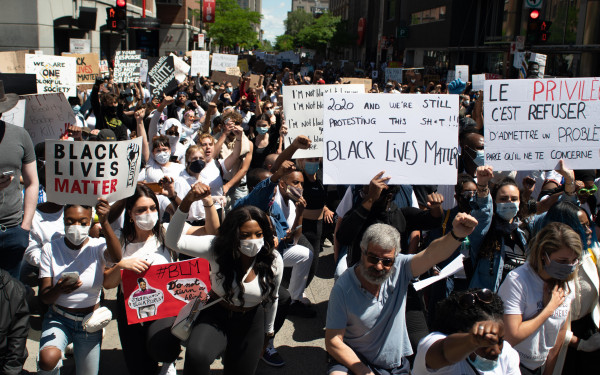Editorial: ‘We Got You’ serves students by standing up for inclusion
The Concordia Student Union was not impressed when Concordia University recently unveiled its Equity, Diversity, and Inclusion recommendations.
Before the semester, President Graham Carr sat down for an interview with The Link in which he said an announcement was coming as a result of conversations around anti-Black racism with various university stakeholders. Whether or not the Working Group’s recommendations constitute what he promised, they are not ideal. The CSU and Graduate Students’ Association were not truly given a seat at the table, and the group did not facilitate mass participation.
As the CSU points out, the report does not even use the phrase “systemic racism,” preferring less direct language to refer to entrenched systemic injustices.
The CSU’s swift criticism of the process marks a departure from the priorities of last year’s executive. This year’s team, We Got You, headed by General Coordinator Isaiah Joyner, seems to be pushing to better represent racialized students and making the fight against systemic racism at Concordia a higher priority for the student union.
CSU council itself, however, seems more divided. When voting for Black Lives Matter as the union’s annual campaign, it took much convincing to get some councillors to approve. There have been many cases of openly bigoted remarks.
While steps are being taken at Concordia, the work is not done—as is highlighted day after day on the Untold Concordia Instagram page.
Since its first post in July, the account has amassed over 40 posts documenting students’ experiences with discrimination at Concordia, often in interactions with professors.
There are several stories about professors and students uttering racial slurs. This was the experience of film studies students who launched a petition this summer against a professor who has also been accused of creating a hostile environment for Indigenous students.
Even still, there is a silver lining. A group of students working to form a student association called the Black Student Union gained many more signatures than they needed on their petition, part of the Clubs and Space Committee’s application process. The group’s aim is to provide a safe space for Black students at Concordia to share common experiences.
A petition this summer demanding action from Concordia on systemic racism gathered nearly 7,000 signatures. One co-author, a professor, characterized EDI as a band-aid solution if it is not accompanied by an acknowledgment of systemic anti-Black racism.
“These institutions are always willing to have conversations that ultimately exhaust us,” said another.
Concordia must be prepared to look at itself critically. When it creates an initiative like Equity, Diversity, and Inclusion, is its first priority to deflect or to deconstruct? Just because the university casts itself as a progressive institution does not mean it can take this conceit for granted.
Other organizations must also work to shed complacency.
We acknowledge that we, too, must examine our own conceit of ourselves. In our case, we must aspire to live up to our mandate as a student-funded advocacy publication. An advocacy publication is not defined only by the words on its pages but by the attention it pays to its systems and its humanity.
How can organizations cultivate environments in which those who are subjected to systemic injustices can express themselves freely and safely? That is something no organization can take for granted, not even those that proudly wear a progressive badge. Indeed, perhaps some of these organizations are uniquely susceptible to atrophy.
In this vein, Concordia cannot sit back and put its chips on EDI, a project that can seem designed to placate rather than empower.
Correction: A previous version of this article claimed that the Black Student Union had already been approved as a student association. In fact, it is still in the application process. The Link regrets this error.







